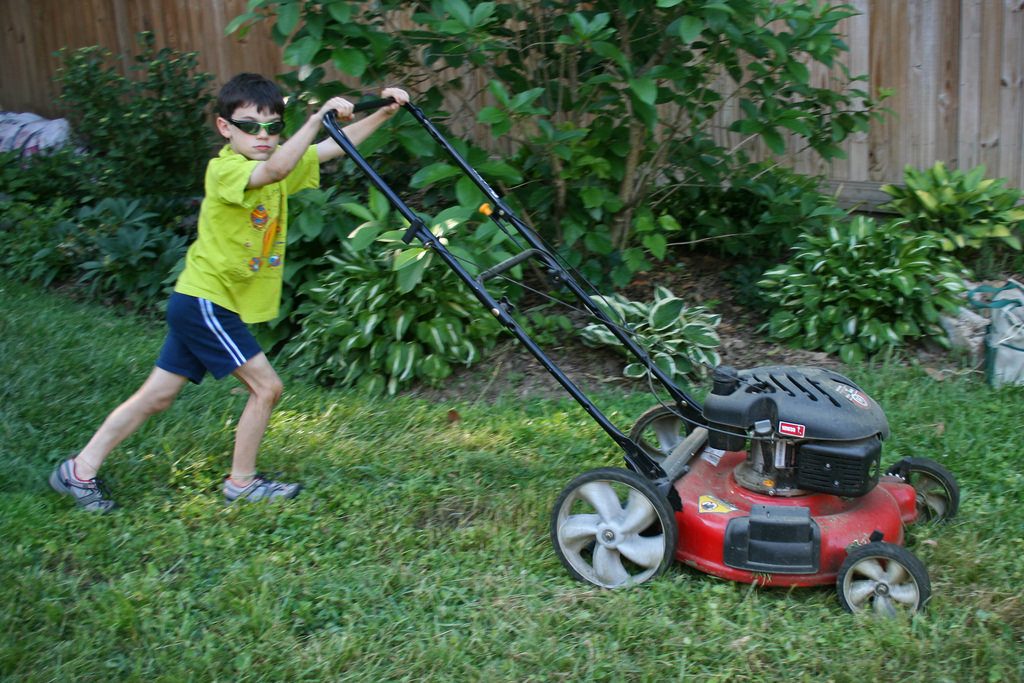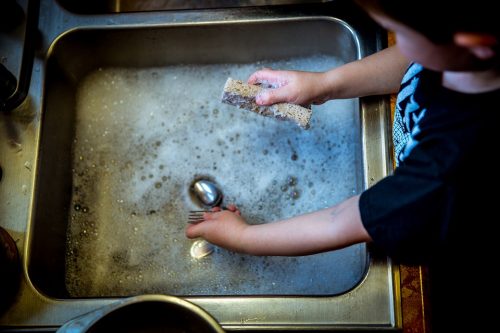5 Reasons Why You Shouldn’t
Many American parents pay their kids for doing their chores. One child expert, who’s a parent herself, stresses out that this shouldn’t be. Find out the reasons why.

A large number of American parents are paying their children to do their chores. They believe that in doing so, they are:
- Encouraging their kids to complete the household tasks delegated to them,
- Impressing in them the idea that money isn’t given freely, but one has to earn it to have it, and,
- Teaching them the valuable lesson of making money on their own.
While these are excellent reasons, one child expert faults this kind of philosophy.
“I find the idea of paying your kids as a reward for doing their chores against the foundations of family living,” she says. And she backs her statement with these five reasons.
- Household chores are a great teaching tool to teach your kids about responsibilities particularly the ones we do as a family.
Dona Matthews Ph.D. says “Kids who do chores learn to take responsibility. Instead of letting others do the work, they look for ways to contribute.” Cleaning the table, taking out the trash or making their beds are responsibilities they’re still going to do every day when they’re all grown up and living independently. Paying them to do these things send the message that rewards like money always accompany everything they do in life.
“Of course, you can always pay them for tasks you’ll typically hire someone to do like mowing the lawn and such. But the simple chores, you shouldn’t pay for them. They’re there to teach your kids about good habits they’ll find useful when they’re going to live on their own in the future,” she adds.
- Doing household chores means everyone’s a team player and that everyone who lives in the house is expected to pitch in to make the place clean and habitable.
“Insisting on chores sends children the message that being part of a family means pitching in and doing things for the greater good.” Eileen Kennedy-Moore Ph.D. explains. “Chores are a great way of telling your kid he or she is part of your family team, that doing things together is awesome, and that team playing, delegating tasks makes a burden easier to bear and faster to finish,” the child expert states.
These are lessons he or she can use in the future especially with team-related tasks at work.
- There are things one does in life out of his or her sense of duty; not everything you do is rewarded, and that’s fine.
You don’t get rewarded for everything you do in life; reality doesn’t work that way. Moms don’t get paid to make the whole family dinner or washing all the laundry accumulated within the week, and dads don’t get a salary for fixing broken things around the house. Doing these things are part of their sense of duty as parents, and the kids need to understand that, she exerts.
- Household chores are great teaching tools to instill in kids that finding satisfaction and taking pride in one’s work is more important than being given a monetary reward for it.
Eugene Beresin M.D., M.A. reminds that “tackling responsibilities helps kids feel that they are growing up. They are fulfilling an intrinsic desire and drive to become independent, autonomous individuals.”

“We all want our kids to succeed in life. But we are not drumming in them the right path to it when we pay them for merely doing their chores. Children should learn to do their tasks in a way that satisfies them and that they should take pride in things they do even if that’s only cleaning the table. These characters are essential when they start working. Doing more than what’s expected of them and giving their very best makes them predispose for work promotions and such, which are rewards in themselves,” she says.
- There are a lot of various means for your child to earn money; don’t include doing household chores in that list.
“leave doing the chores alone when you present the many ways your child can earn money to him or her,” the expert states. “As I said earlier, you can let him or her do the tasks you’ll normally pay someone to do – washing the car, tidying up the lawn, the possibilities are endless.”
“Changes are inevitable, I know. But I believe basic family living should stay the same even if other factors change and that includes delegating tasks within the family. Don’t make your child feel like he’s paid to be part of the family. I think that’s the message paying him for doing chore sends,” she concludes.
